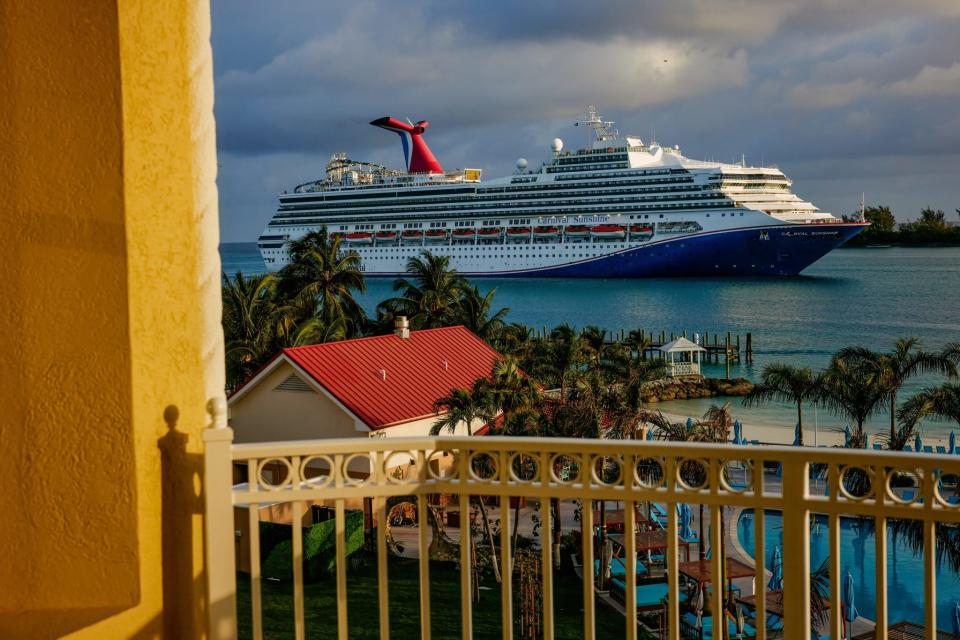Carnival shares rise as flood of demand for cruise bookings bolsters record quarterly results

After cruises became the canary in the coal mine for the tourism industry's decimation during the pandemic, bookings have come roaring back. The biggest winner is cruise companies, with Carnival reporting on Tuesday that it had reached record revenue in the second quarter of 2024.
The outlook for the cruise giant is even rosier for 2025, with advanced bookings set to be higher than in 2024. Analysts at UBS maintained their buy rating on the stock, setting a target price of $21. Carnival shares rose Tuesday on the news, reaching $18.40 at time of publication after hovering around $16 at the start of the week.
View this interactive chart on Fortune.com
A rising tide
After a disastrous 2020 and 2021, which saw cruise companies lose tens of billions of dollars and become saddled with debt, they won back customers with what a Morningstar analyst referred to as "diplomatic pricing"—offering deep discounts and packaging together amenities.
In Tuesday's second-quarter earnings release, Carnival announced it had prepaid around $6.6 billion in debt over the last 15 months, reducing its debt by nearly 40%. With growing revenue, however, the company also has invested in infrastructure, including installing the Elon Musk–run internet service Starlink across its fleet and launching a new ship called Queen Anne, which can hold 3,000 passengers.
Competition remains steep, with Royal Caribbean unveiling the Icon of the Seas, the world's largest cruise ship, in January. Carnival's market cap of $23 billion is just over half of Royal Caribbean's $41 billion, though it remains the largest company in the industry by number of boats. The Switzerland-based Viking remains the smallest of the big three, with a market cap of around $13 billion.
Despite the positive outlook, UBS analysts warned that an economic slowdown, especially in the U.S. and Europe, could impact booking levels and pricing. Fuel prices remain another concern. Still, Tuesday's financials outperformed the analysts' expectations, largely driven by increased bookings and higher pricing. According to a separate report from Morningstar, booking patterns indicate that 2025 could yield higher results than the 3% previously predicted.
A May report from the trade association Cruise Lines International Association attributed the growth to new passengers, with 27% of "cruisers" over the past two years embarking on their first voyage, an increase of 12% over the past year. According to the report, cruise tourism rebounded faster than other forms of travel after the pandemic, with 31.7 million passengers in 2021 compared with pre-pandemic numbers of 29.7 million in 2019.
This story was originally featured on Fortune.com

 Yahoo Finance
Yahoo Finance 